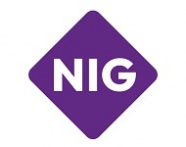New rules for multi-occupancy buildings insurance: Everything you need to know

Authored by NIG
The Financial Conduct Authority (FCA) has been working closely with the Department for Levelling Up, Housing and Communities to address concerns around insuring high-rise buildings in the aftermath of the 2017 Grenfell Tower fire.
They concluded that the market was not working in the interests of leaseholders, regardless of the type of property they lease, for a number of reasons, including:
- Lessees’ needs not being considered: Because lessees are not the insured party and therefore not direct customers of insurers or brokers there are no obligations to consider their needs, even though they typically pay the insurance premium.
- Lack of visibility for lessees: Lessees typically have no visibility of the arrangements made or ability to challenge decision makers to ensure they are getting value for money.
- Complicated remuneration models: Extended distribution chains, including Property Managing Agents and freeholders, are receiving a share of money paid by leaseholders with no obvious link to the work they are doing.
As a result, new rules will apply to contracts concluded from 31st December 2023, including new business or renewals but not mid-term amendments. This has wide-reaching implications for all parties involved in leasehold insurance, including insurers and brokers.
We’ve answered some key questions below:
Q: Under what circumstances do these new rules apply?
The rules apply to buildings insurance for any UK leasehold dwelling, regardless of the type of building, or its height. They aren’t limited to blocks of flats or units with multiple occupancy. There are also no exceptions for large risks.
However, there are some instances where the rules don’t apply, including:
- To commercial properties or dwellings which are let to businesses.
- To rented properties where the tenants pay general rent and don’t have an itemised cost for insurance.
Q: What exactly is changing?
New disclosure documents will need to be produced by brokers and insurers
The FCA has set out broadly what content is required in these new disclosure documents, but not the format or layout, so interpretations will vary.
Content should be:
- designed for a consumer audience
- less technical than current materials, which are designed for the insured customer
The expectation is that NIG, as the manufacturer, will send our content to the broker who will collate this with their own content.
This combined material must be sent by the broker to their client, e.g. a property managing agent or freeholder, with a clear message that it also needs to be sent on to each eligible tenant. It can be sent alongside other documents but must be clear and delivered via a durable medium.
Disclosures must be sent as soon as reasonably practical after the conclusion of the contract. There is no requirement to send updated disclosures on mid-term amendments.
If the tenant does not receive the disclosure, they can approach NIG or our brokers for the material. But, if we are asked for it, we will redirect the tenant to the broker, as we will not have the full document or any way to determine if they have a right to receive the information.
Full details of the content can be found in the FCA Handbook HERE
- Customers should be provided with fair value for any distribution arrangements made
While there are no new specific rules around remuneration, other than the disclosures described above, there is a continuation of themes the FCA has been raising for a while around providing fair value to customers.
Where there are distributors, each one must assess and only receive an amount that provides fair value, including any fees and charges added. Extended distribution chains bring extra concerns if each is adding cost to the customer.
- Policy stakeholders have been introduced by the FCA
A policy stakeholder is a natural person who is not the policyholder but does have an interest and/ or benefit in the subject matter of the insurance and has an obligation to pay the premium and any other costs connected to the distribution.
The current specific application of the term is that there are additional disclosures for leaseholders, who are an example of policy stakeholders. There will be other examples of policy stakeholders who are not leaseholders. In such cases, it would be appropriate to consider those types of customers when considering target market for products and distribution, as well as when assessing fair value. However, no additional disclosures are required now.
Want to know more about the new rules? Speak to your usual NIG Contact
About NIG
We’ve been experts in commercial insurance for 125 years.
The National Insurance and Guarantee Corporation (NIG) is a broker only insurer; we believe in getting to know both the brokers we work with and their clients’ businesses, building trusted partnerships that last for the long-term. Our highly experienced underwriting team are focused on working with brokers to identify and understand the risks faced by UK enterprises. Together, with our risk control experts and risk management tools we develop solutions to help UK enterprises reduce and mitigate key exposures. We offer a wide range of products with flexibility to create tailored insurance cover and when clients need us, claims are dealt with quickly and fairly through a proactive claims approach.
Our trading model has been designed to reflect the differing requirements of how brokers like to trade, with regional offices, National Trading Centre, National Schemes Centre, eTrade Centre of Excellence and dedicated experts for specialist sectors.
We’re investing in new technology to make us even easier to trade with. We’re launching an online risk management resource supported by our in-house Risk Control Team and introduced online claims submissions to speed up the claims process, minimising disruption to clients’ businesses. We are also the only insurer two years running with a five-star rating for both TheHub and Software Houses, in the Insurance Times 2019 and 2020 eTrade survey.
We are dedicated to making UK enterprises more resilient.
NIG is a wholly owned subsidiary of Direct Line Insurance Group plc, providing stability and financial strength. Our policies are underwritten by U K Insurance Limited.

